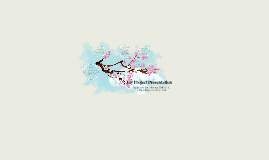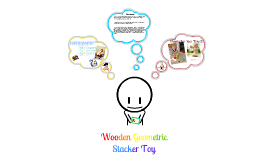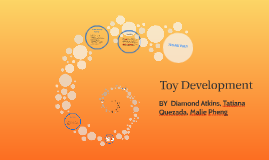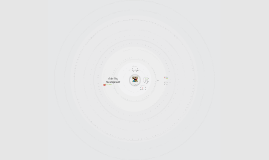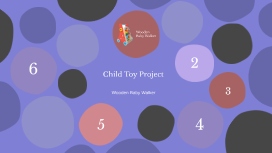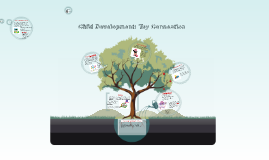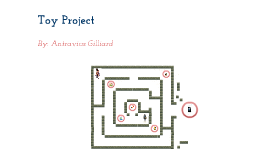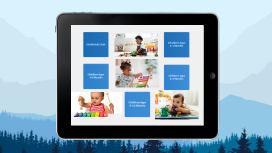Child Toy Presentation
Transcript: INTRODUCTION Child Toy Presentation By: Jayla Jones Chuldern Ages 0-3 Months Age: 0-3 Months Childern 0-3 months are just now adjusting to the world outside their mothers, They cannot do much, so here is a toy I think will be perfect for them. This is hanging rattle toy, you can connect it to a child's bed or some carseats, it also plays music. I think this toy is deveoplmently appropriate because since they cannot do much, they can watch and listen to this toy. I think this can help with the babies listening skills and eysight. According to the child development book on page 247, babies 0-3 months cant see colors really well, unless they are black and white, the type of development I would be targeting is physical development. I think what really lead me to get thtis toy would be the colors and the fact that it plays music, also I can use this toy for 0-6 months of age. I it think this will be really good for a baby. So this toy was $19.97 and i think its a great price considering the fact that you get two of them. The only safety precautions I would need to take is to make sure it is secure to whatever it is hanging on so it doesnt fall on the baby. Childern Ages 3-6 Months Babies 3-6 Months Babies 3-6 area a little bit more active, they coo an grab things, some babies even start teething around 6 months. And around 5 months they start to see more color. This rattle and teething toy set is developmentally approprite for babies 3-6 months becasue during this stage they start to see colors better and they are more aware of the things going on around them. Accoridng to the working with young childern book on page 61, babies at this age are leanring that they can touch, shake and hit objects they see and can notice that they make sound. This toy would help with phyical development by them holding it and shaking it, also accoriding to working with childern book, on page 61 it says mouthing helps the babies learn about objects. So with this toy they can mouth it which also helps their jaw muscles. The type of development would be physical. I think the aspects of this toy that made me want to buy it is that they are colorful with will help with the baby adjusting to colors and then they also shake and mouth them. The price of this toy was only $13.78 and i think thats a reasonable price consdiering it comes with so many different rattles and teethers. I think some safety precautions i would have to take is making sure none of them are broken before giving them to the baby that way they wont cut their mouths on a sharp part or choke on the stuff inside the rattle. Childern Ages 6-9 Months Babies 6-9 Months Babies 6-9 months are at the stage where they are crawling around or trying to crawl, they are extermly active and they want to explore everything. This is the age where parents start to baby proof their house so the baby can be safe when exploring. This toy is developmentally appropiate for babies age 6-9 months becuase it is helpful for them learnig how to crawl and move around. The skills this toy would help with would be the moving of the legs and arms, hopefully helping them to crawl and getting up on all fours. The type of development is phyical and intellectual. I think the aspects of this toy that presuaded me to buy it is that it makes sounds and it helps the baby to crawl by moving around. also it has different acitivies attached to it. According to the child development book, on page 220, childern start crawling between 6-8 months. The price of this toy is $30, while this toy does alot like moving and making noise, i think it is preety expenisve and im sure u can find somehting cheaper. I think the safety precautions I would need to take is making sure the baby doesnt fall on it becuase its hard and they could get hurt and to make sure they arent putitng their mouths all over it because it gets dirty by moving all over the floor. Childern Ages 9-12 Months Babies 9-12 Months Babies 9-12 have started to stand and they are starting to learn to walk and using gross moter skills. Babies are learning to walk and they can walk using support from an adult or a walking toy. Childern 9-12 months are learning to stand along wtith learning to walk. adults can hold their hadns and they can take a few steps. This is walker and its devlopmentally approprite for the age range 9-12 because they can use it to pull themselves up onto it and use it to stand, then they can use it to support them when they start walking. According to the CDC a 12 month old should be pulling up on things to stand, and holding on to funturie, they should also be walking or starting to walk. This would help with they physical skills, and the level of development would be physical development. The aspects that persuaded me to buy this toy was the fact that it has mulituple uses, the child can use the walker part or they can sit down and play at the table. The price of this walker is 46 dollars which is a little much and I think you can find






